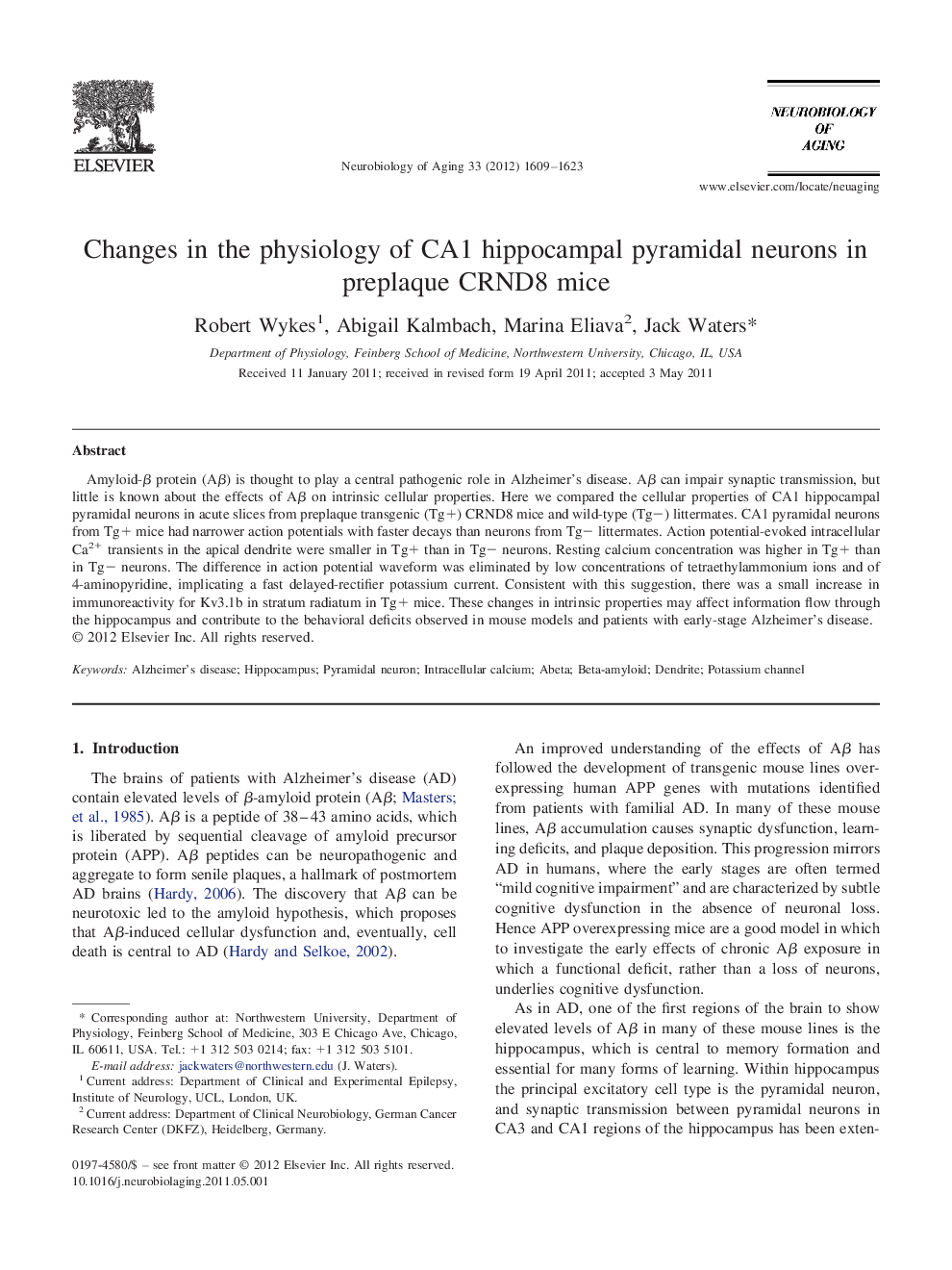| Article ID | Journal | Published Year | Pages | File Type |
|---|---|---|---|---|
| 6808350 | Neurobiology of Aging | 2012 | 15 Pages |
Abstract
Amyloid-β protein (Aβ) is thought to play a central pathogenic role in Alzheimer's disease. Aβ can impair synaptic transmission, but little is known about the effects of Aβ on intrinsic cellular properties. Here we compared the cellular properties of CA1 hippocampal pyramidal neurons in acute slices from preplaque transgenic (Tg+) CRND8 mice and wild-type (Tgâ) littermates. CA1 pyramidal neurons from Tg+ mice had narrower action potentials with faster decays than neurons from Tgâ littermates. Action potential-evoked intracellular Ca2+ transients in the apical dendrite were smaller in Tg+ than in Tgâ neurons. Resting calcium concentration was higher in Tg+ than in Tgâ neurons. The difference in action potential waveform was eliminated by low concentrations of tetraethylammonium ions and of 4-aminopyridine, implicating a fast delayed-rectifier potassium current. Consistent with this suggestion, there was a small increase in immunoreactivity for Kv3.1b in stratum radiatum in Tg+ mice. These changes in intrinsic properties may affect information flow through the hippocampus and contribute to the behavioral deficits observed in mouse models and patients with early-stage Alzheimer's disease.
Keywords
Related Topics
Life Sciences
Biochemistry, Genetics and Molecular Biology
Ageing
Authors
Robert Wykes, Abigail Kalmbach, Marina Eliava, Jack Waters,
